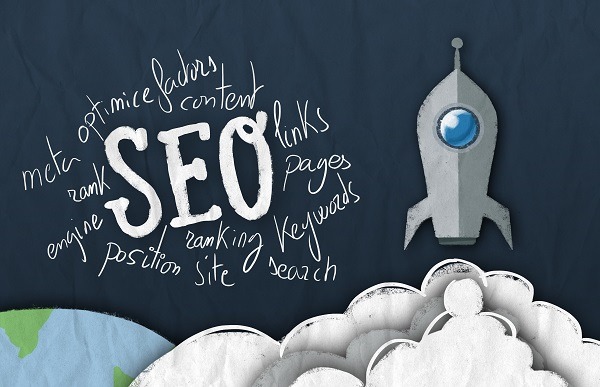- Like
- SHARE
- Digg
- Del
- Tumblr
- VKontakte
- Flattr
- Buffer
- Love This
- Save
- Odnoklassniki
- Meneame
- Blogger
- Amazon
- Yahoo Mail
- Gmail
- AOL
- Newsvine
- HackerNews
- Evernote
- MySpace
- Mail.ru
- Viadeo
- Line
- Comments
- Yummly
- SMS
- Viber
- Telegram
- JOIN
- Skype
- Facebook Messenger
- Kakao
- LiveJournal
- Yammer
- Edgar
- Fintel
- Mix
- Instapaper
- Copy Link
Digital marketing is, perhaps, the most potent business tool that brands have at their disposal these days. It has become even more valuable now that the coronavirus pandemic has restricted public outings to limit the spread of infections. Fortunately, consumers can still shop online and have their purchases delivered conveniently right at their doorsteps. However, it does mean that the competition for customers’ attention has increased.
If you run a business website, off-page search engine optimization (SEO) is an aspect of digital marketing that you should focus on. It plays a significant role in the success of your venture.
What Is Off-Page SEO?
Off-page SEO pertains to any digital marketing strategy that doesn’t entail making modifications on your own website. To put it simply, it’s all about maximizing the factors in another site or platform to boost your online advertising efforts.
These are some major examples of off-page SEO methods:
- Link Building – This is one of the most popular tactics for this digital marketing type. Search engines, like Google and Bing, continue to use links as signals of the quality of a site’s content. The process involves acquiring backlinks, also known as inbound links, from third-party websites. When a lot of blogs or sites refer and include a link to one of your posts on their content, it implies that you provide relevant information on a particular subject, which can help you rank high in the search engine results pages (SERPs).
- Guest Posting – This tactic may actually be considered as a link building process. With guest posting, you reach out to other site administrators and ask them if they accept third-party contributions on their blogs. If they do, you can write an article that includes your links, which will be published on their domains. Just make sure that you provide relevant content and insert your hyperlinks naturally.
- Social Media Marketing – Social media is another tool that’s commonly used for off-page SEO. Most consumers have accounts on their preferred platforms. With this, you can use these networks to reach your target audience by sharing links to your website and market to them directly when they land on your domain.
Why Is It Important?
The primary importance of optimizing your website through external platforms is that you can use it to boost your authority. It’s one thing to promote that your brand provides superior products and another to have your customers verify your claims. The latter is more believable.
Social media mentions can serve as reviews of your website and, ultimately, your company. Consumers are either praising your products and services when they tag your brand online or complaining about the subpar quality that has fallen short of their expectations. Of course, you can’t expect to have zero negative reviews. However, you can do some damage control by engaging irate customers in a dialogue and assisting them in the things that you can do to improve their experience with your company.
Another importance of off-page SEO is that it’s useful in obtaining backlinks. As mentioned above, search engines continue to look at the number of sites that link back to your blog. Having a lot of backlinks can increase the trustworthiness of your content.
Think of the process as similar to word-of-mouth advertising. If there are a lot of people talking about your content, it means that your website is interesting enough to generate that kind of attention, which most likely comes from relevant and accurate information. This is particularly true if you run a blog that provides tips and tutorials since you need to establish your expertise in your niche.
Nonetheless, you should still be discerning about the quality of the backlinks that you acquire, especially with guest posting, since you have control over the type of websites you reach out to. Remember, you have to focus more on the quality than the number of your inbound links to improve your site’s rank on search engines for your target keywords.
Factors To Consider
A reputable website can pass on some of its authority when they link to your domain. A single backlink from a high-authority blog is worth more than several links from low-authority pages.
According to Google’s Quality Rater Guidelines, these are the off-site SEO signals that influence your site’s ranking:
- Online Reviews – Positive feedback from users not only boosts a website’s reputation among human consumers, but with search engines as well. It’s also an excellent way of verifying a company’s claims about the efficacy and value of its products and services.
- Expert Recommendations – Opinions from sources that are considered as experts on a specific subject also play a significant role in a website’s search engine rank. Professional societies are examples of expert communities that can boost your domain’s authority.
- Third-Party Authority Mentions – Well-known sites, such as news outlets and Wikipedia, can also contribute some of their link authority into your website if your link gets featured in their content.
You also have to think about dofollow and nofollow attributes that are attached to your link. If a website tags your URL with the latter, that domain’s link juice won’t be passed onto your site.
When looking for backlink opportunities, you should pay attention to websites that provide dofollow outbound links. But, you can still get SEO value from nofollow links. These URLs can still bring in referral traffic, which has a positive effect, albeit indirectly, on your site’s SEO.
Conclusion
Off-page SEO is any strategy that you implement outside of your website. This can be through link building efforts, such as guest posting, or maximizing your social media reach. The primary importance of this digital marketing tool is to boost your site’s authority. Having other websites and web users share your content shows that you provide relevant and accurate information about your niche.
Another significant reason why you should also put effort into optimizing your website through external platforms and tools is so that you can acquire backlinks. This type of link is still being used by search engines as a ranking signal. Just make sure to target high-quality sites so that their link authority is passed onto your domain.


